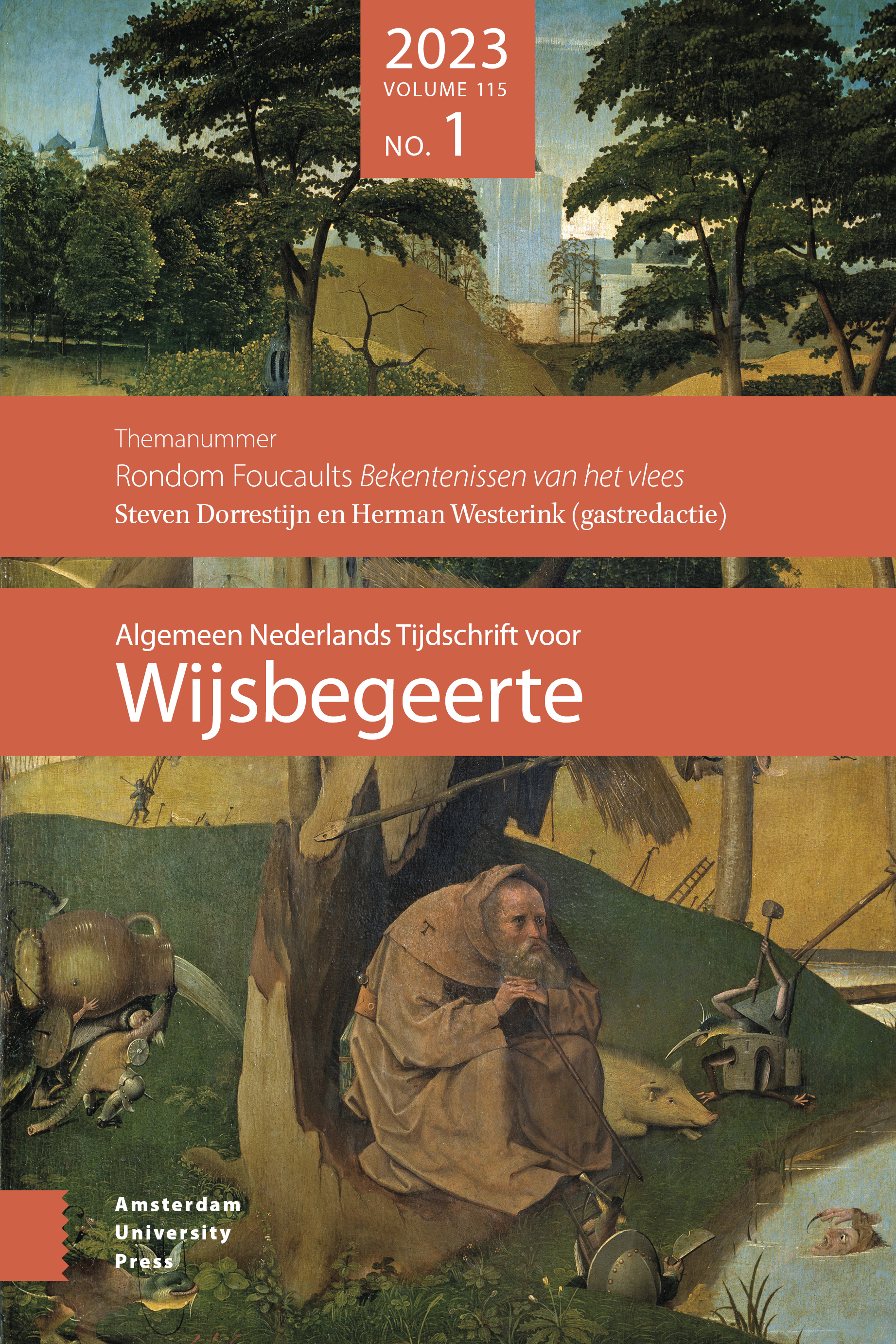-
oa Verzet en maagdelijkheidstechnieken
Een feministische lezing van Bekentenissen van het vlees
- Amsterdam University Press
- Source: Algemeen Nederlands Tijdschrift voor Wijsbegeerte, Volume 115, Issue 1, Mar 2023, p. 30 - 45
-
- 01 Mar 2023
Abstract
Resistance and Techniques of Virginity: A Feminist Reading of The Confessions of the Flesh
What is the feminist relevance of Foucault’s posthumously published Confessions of the Flesh? This question is part of a larger debate on the usefulness of the later Foucault in conceptualizing resistance against patriarchal power relationships. This paper follows those who argue in favor of the feminist potential of his concepts of freedom and care for the self, in particular the notions of ascesis and askesis. I argue that resistance against gendered norms is explicit in his discussion of counter-conduct (1978), which he links to late-medieval mysticism and to excessive, physical experiences. Both the gender-component and the excessive corporeal experiences disappear, however, from his later concept of askesis, which suggests that Foucault’s omission of women coincides with a displacement of the suffering body as a site of resistance. In the second part of this essay, I argue that this thesis is complicated by the recently published Confessions of the Flesh, and its lengthy discussion of early-Christian virginity. I conclude by commenting on the historiographical limits to recuperate moments of resistance.


